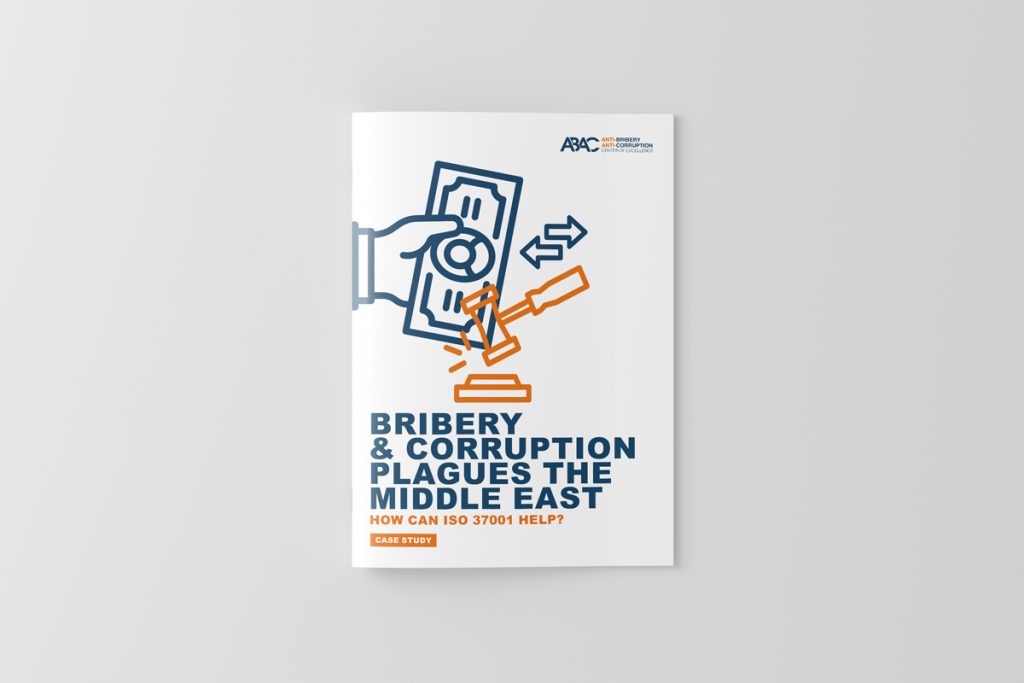How can ISO 37001:2016 help the Middle East battle against bribery and corruption?
Political and governmental unrest can affect a region’s economy and the integrity of business transactions. The current state of the Middle East exemplifies this phenomenon. While governments in the region are trying to curb corruption, political instability and regime changes often undermine these measures. Bad actors understand how to take advantage of such vulnerabilities, leading to increased bribery and corruption across international borders. ISO 37001
Recent cases and statistics show that the problem persists in most countries. Against this backdrop, most government officials and private sector business leaders view it as a high priority to reduce bribery and corruption. However, one of the problems is that some dishonest politicians use supposed anti-corruption efforts as a tool against political enemies. This clarifies that the best approach is for government agencies and businesses to lead from the front. Adopting an internationally recognised set of anti-bribery anti-corruption standards will result in increased business integrity.
Organisations committed to this effort adopt the ISO 37001 – Anti-Bribery Management Systems standard as a comprehensive approach to mitigating bribery and corruption risk. ISO 37001 and its elements can be tailored to any size organisation. The key elements include adopting an anti-bribery policy, appointing a person to oversee anti-bribery compliance, training, risk assessments and due diligence on projects and business associates. ISO 37001 also calls for implementing financial and commercial controls and instituting reporting and investigation procedures.


